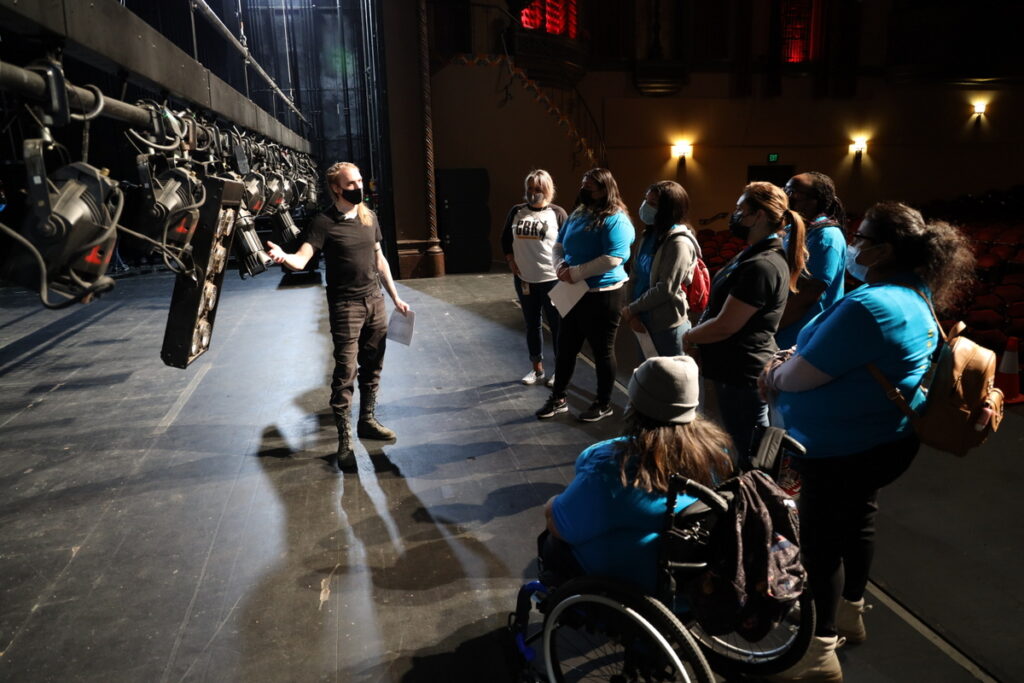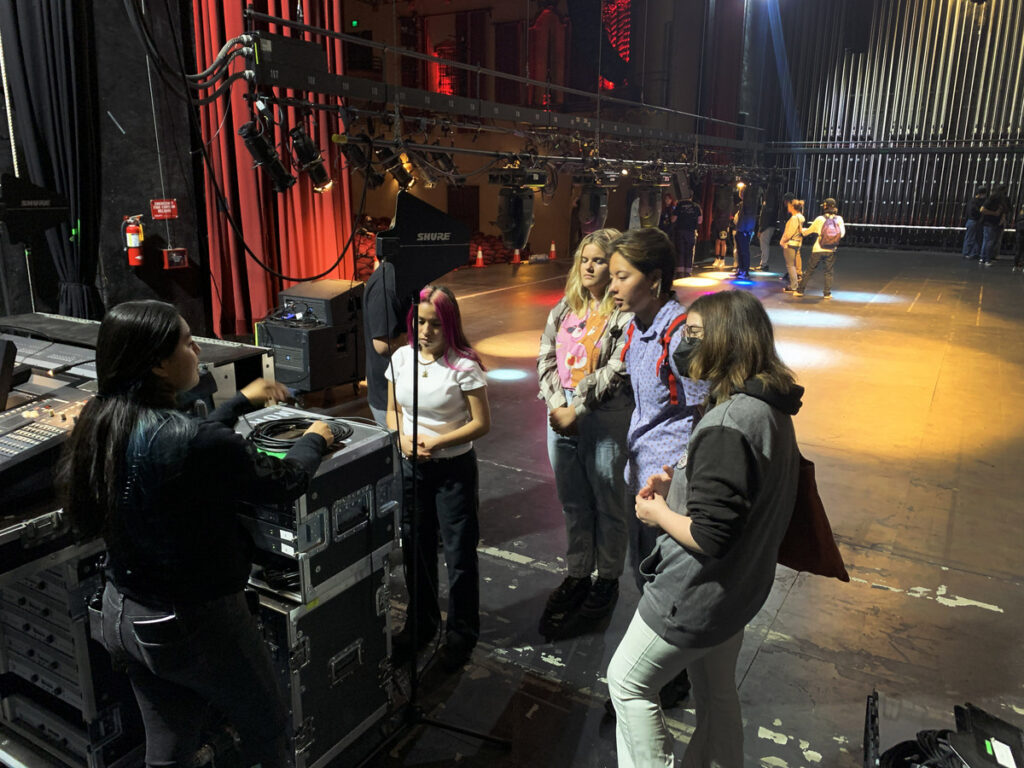Live Tech
A theater technology workshop for high school and early college age students looking for hands-on experience behind the scenes at a professional theater.
Live Tech is the Fox Theater Foundation’s smash success pilot program for vocational and career technical education (CTE) opportunities for high school students through the Fox Performing Arts Center. It teaches theater technology to area students, using the Fox Performing Arts Center as a professional-grade learning lab and Live Nation (the theater operator) professionals as instructors. 
Live Tech is structured as a week-long intensive, and trains up to 200 high school students from regional high schools each cycle. The Fox Theater Foundation sponsors schools through the coordination of the program and through fundraising activities, which are used to hire Live Nation technical staff for this workshop. Under the guidance of professional mentors, students in attendance are taught skills in audio, visual, lighting, and stagecraft, on the actual equipment used in shows at the Fox. Students who complete the workshop receive official certifications, which they are able to add to their resumes.
We received overwhelmingly positive feedback for our inaugural year (2017-2018), and demand is high for Live Tech 2018-2019, which we consider a resounding success! We plan to meet that demand through the expansion of the program, which has been made possible with the help of this year’s generous Live Tech Sponsors: Bank of America, and the Weggeland Family. Thanks to their support, we are currently on track to train 400 students in under-served and impoverished communities, for the purposes of job training and exposure to nontraditional career paths.
Why Performing Arts Career Technical Training?
The community need this program addresses is simply, access to free CTE training from a huge area corporate employer.
There is an extensive amount of data that supports the benefits of vocational and career technical education (CTE) programs, as it, when done well, creates employment pathways for under-served communities, and also helps boost employability for individuals seeking to follow nontraditional career paths.  There is a wealth of evidence supporting that early exposure to career possibilities, and technical training opportunities, injects economic stability into communities and combats unemployment challenges – particularly in under-served communities whose ultimate career path may not lead them to college or institutions of higher learning.
There is a wealth of evidence supporting that early exposure to career possibilities, and technical training opportunities, injects economic stability into communities and combats unemployment challenges – particularly in under-served communities whose ultimate career path may not lead them to college or institutions of higher learning.
Regional demographic data supports CTE provisions and programs; of our two primary constituent school districts (Riverside Unified and Alvord Unified), per the California Dept. of Education’s California Longitudinal Pupil Achievement Data System:
- 51% of our local students are low to moderate income, meaning the literal majority of them live at or below the poverty line. Coming from poverty is a huge factor in an individual’s ability to achieve economic stability.
- 8% drop out of 9-12th grade. This adjusted four-year cohort high school dropout rate, while lower than the national dropout non-adjusted rate (approximately 25%), is known to be significantly skewed, with the highest dropout rates for Hispanic students of all ages.
- 67% are Hispanic
- 15% are from other minority communities
- The majority of students are, on average, at or below the poverty line and largely from minority communities.
Given that data, our Foundation knew it had an opportunity to make a huge impact – and we can say for certain that Live Tech is an evolution for our organization that has been humbling in its success. We have seen firsthand how this vocational training and exposure to the arts creates an inspiring atmosphere for our participants, who get rigorous, hands-on experience in an historic and beautiful theater, under the watchful guidance of actual theater technicians and engineers.
For us, the win is twofold; while our organization works diligently to provide this training, we do recognize that this inspiration yields a range of outcomes, all of which culturally enrich our community in the arts. Some of our students learn to be patrons of the arts and support their community with their patronage; some may go on to work as musicians or performers; some may pursue one of the myriad of opportunities behind the scenes, whether in the back offices, or behind the curtains. We consider any of those a resounding success.
